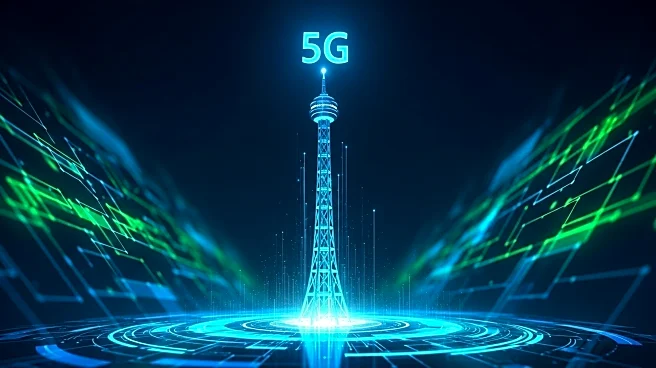What's Happening?
Ericsson has inaugurated a new office in Hanoi, Vietnam, emphasizing its dedication to supporting the country's digital transformation. This move aligns with Vietnam's strategic goal to have its digital economy contribute up to 30% of the national GDP by 2030. The establishment of the office is part of Ericsson's broader strategy to enhance its presence in Southeast Asia, particularly in the 5G sector, which is considered a critical infrastructure for Vietnam's economic ambitions. The new office is expected to facilitate the deployment and expansion of 5G networks, which are pivotal for advancing Vietnam's technological capabilities and economic growth.
Why It's Important?
The opening of Ericsson's 5G-focused office in Hanoi is a significant development for Vietnam's digital economy. As the country aims to integrate more digital solutions into its economic framework, the presence of a major telecommunications player like Ericsson can accelerate the adoption of 5G technology. This advancement is crucial for various sectors, including manufacturing, healthcare, and education, which can benefit from enhanced connectivity and data capabilities. Moreover, Ericsson's investment in Vietnam underscores the country's potential as a growing market for digital infrastructure, attracting further foreign investment and technological innovation.
What's Next?
With the establishment of the new office, Ericsson is likely to collaborate closely with Vietnamese telecom operators and government agencies to roll out 5G services more extensively. This collaboration could lead to pilot projects and partnerships aimed at demonstrating the benefits of 5G technology across different industries. Additionally, as Vietnam continues to prioritize its digital economy, there may be increased regulatory support and incentives for companies investing in digital infrastructure, potentially leading to more international tech firms entering the market.
Beyond the Headlines
The expansion of 5G infrastructure in Vietnam could have broader implications for the region, positioning Vietnam as a leader in digital transformation within Southeast Asia. This development may also influence regional policies on digital economy integration and cross-border technological collaboration. Furthermore, the focus on 5G technology could drive innovation in local startups and tech companies, fostering a more vibrant and competitive digital ecosystem.











